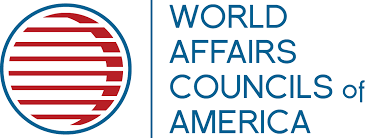The Essential Nature of Human rights
As with many of these conversations, there is a tendency to include a litany of issues as a part of Human Rights. Following the horrors of the Second World War, the world came together and created the Universal Declaration of Human Rights, which provides the foundation of Human Rights laws, which was ratified by all but eight member states (they abstained rather that rejecting it). Outlining what governments can and cannot do to you as a person, these laws help the world come together and avoid the worst of human nature, this episode will help you to understand what it is meant when the conversation turns to Human Rights and the need to uphold them.
Speaking with Dr. Katrina Lantos Swett, President of the Lantos Foundation for Human Rights and Justice, your hosts bring together a wide range of conversations to help you better understand how these Human Rights are implemented and what happens when they are not followed. In addition, what happens when the idea of Human Rights gets caught up in geo-political debates that minimize some rights, while amplifying others. Don't worry, there is even a conversation on how countries and leaders can be held accountable in real life for their violations of Human Rights.
Ingredients: 12 oz. glass, 10 oz. milk.
|
Aquas Frescas
|
Ingredients: 12 oz. glass, 10 oz. water, handful of water.
|
Dr. Lantos Swett is the former Chair and Vice-Chair of the United States Commission on International Religious Freedom (USCIRF) and teaches Human Rights and American Foreign Policy at Tufts University. She currently serves as Co-Chair of the Board of the Committee for Human Rights in North Korea (HRNK) and the Budapest based Tom Lantos Institute. Dr. Lantos Swett also serves on the Advisory Board of UN Watch, the annual Anne Frank Award and Lecture, and The Warren B. Rudman Center for Justice, Leadership, and Public Policy. |





